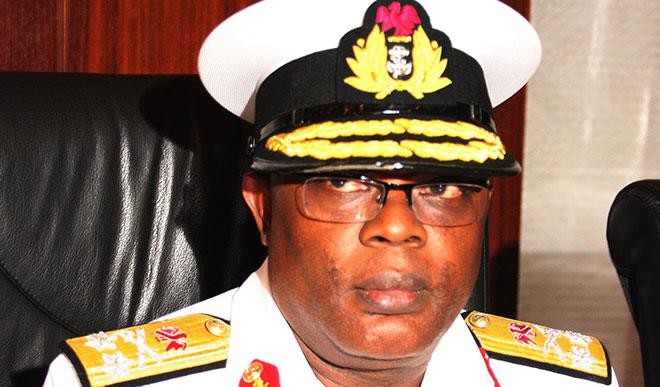
The Chief of Naval Staff, Vice Admiral Ibok-Ete Ekwe Ibas, was in Calabar where he dialogued with officers and ratings in the Eastern Naval Command. In this interview, he says his tenure has helped the nation to save money by purchasing locally made gunboats and other weapons. Excerpts
Daily Trust: Is it true that the Navy now buys its weapons from local manufacturers?
Vice Admiral Ibok-Ete Ekwe Ibas: Most great nations are nations that are able to take their destinies in their own hands. North Korea is a small nation that is is daring a world power like the United States just because they have the capability to develop technologies that could threaten not only their enemies but also the existence of mankind.
Nigeria, over the years, has made attempts to build its technological capacities and capabilities to be able to produce the same equipment, and we identified that in an indigenous company (Epenal), so we decided to try them out. Given the type of challenges we have, they decided to make positive impact in the operations of the Navy. I think we have subscribed to over 150 of their boats. The question as to whether the boats are adequate, even for the best of Navies equipment are never enough. But they are helping to solve the problems we have at hand for now. As for the cost, it cost Nigerian taxpayers a lot but of course, they are delivering on why we purchased those patrol boats in the first place.
The cost however, is a far cry if we were to purchase the equipment outside. Looking inwards, the equipment has saved a lot of resources and foreign exchange for the nation. Going for them has also created employment opportunities for Nigerians, which is why we will continue to patronize that group of companies and others who are ready to support the armed forces of Nigeria.
DT: What is the Navy doing about the threats from the Niger Delta Avengers?
Ibas: The essence of my being here is to carry out an appraisal of the activities of our naval units ashore, training establishments and to exercise the fleet later. This is just a way of figuring out if we are prepared for the various contingencies and threats that are contemporarily emerging. We do not need to wait until an individual has threatened the corporate existence of Nigeria or threatened lives and properties of Nigerians before we respond. We have a wide range of contingencies and so we will ensure that we apply them as appropriate. No individual has the audacity to threaten Nigeria. And so we will continue to do that which we must do to ensure that those who need to use the maritime space do so unhindered.
DT: In the past two years, would you say you have contained piracy in Nigerian waters?
Ibas: Piracy is a crime conceived on land and these guys go to the high seas to harvest where they did not sow. In the past two years, we have made considerable efforts in reducing the menace of pirates.
Just last Saturday, six pirates were arrested and we are investigating the matter. The impact of our operations out there has in a way given rise to increased maritime commerce. We have fishermen that are able to go out there to carry out their businesses to boost the nation’s economy and ensure food security. And from the statistics we have, there is remarkable improvement in the volumes of ships coming into our country. We also have to propagate the efforts of the Navy and be able to reach out to Nigerians to know the negative effects the activities of criminals have on our economy and the nation as a whole.
DT: The Nigerian Navy Referral Hospital in Calabar has not yet been commissioned. What is happening?
Ibas: The Referral Hospital started when I hadn’t even joined the Navy (about 37 years ago). If you recall how much this country spends on referrals abroad, you would marvel why such major hospital was abandoned. Efforts have been made in the recent past to get the facility back. So much resources have been committed into completing it, and we are hopeful that before the end of the year or the first quarter of next year, the facility will be ready for commissioning. But I know that when commissioned, the services the hospital would provide would not only be beneficial to those who reside in the state but also to other Nigerians.

 Join Daily Trust WhatsApp Community For Quick Access To News and Happenings Around You.
Join Daily Trust WhatsApp Community For Quick Access To News and Happenings Around You.


